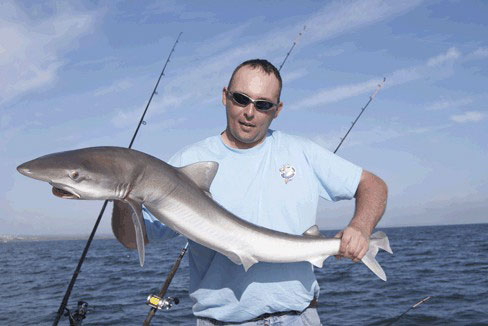THE ORGANISERS of Sharkatag, the biggest single sea angling conservation exercise mounted in the UK, have just published their report on the event. It makes interesting reading.
The three-day tagging marathon held from 12-14 June in the western Solway area of south-west Scotland, was in itself an undoubted success, attracting more than 200 anglers from all over the UK and generating over £41,000 for the local economy.

Some 530 sharks were caught and 222 were tagged. None was killed.
The angling statistics on the face of it seem positive – the Solway after all remains one of the most popular sea fishing destinations in Europe. However, according to the organisers, the Scottish Sea Angling Conservation Network (SSACN), the figures conceal real cause for concern.
They point out:
• the whole region seemed to be void of the expected male breeding stock.
• the majority of the fish caught being mostly immature females, typically under 20 lbs
• Luce Bay was especially poor for the time of year.These factors combined with the lack of rays tagged, only three throughout Sharkatag, shows how urgently plans are needed to help protect and regenerate the stocks. Twenty years ago virtually every boat would have recorded many mature tope and rays.
The smart folks at SSACN didn’t just stop at running a major sea fishing festival which attracted wide television and press interest, they also conducted a post-event survey, the results of which should be carefully digested by VisitScotland and every local chamber of commerce which has a share of our coastline.
Some of the comments regarding not just angling facilities, but the quality and value for money of family holiday food and accommodation, should be ringing alarm bells.
SSACN concludes:
“Unless something is done to protect, and in many cases regenerate the stocks in the Solway, it will follow many other coastal waters in Scotland and fall into decline.
“The social and economic consequences of allowing such a decline to take place would be enormous; the public right to fish is managed by politicians in the Scottish Government – they have a duty to ensure it is managed in the public’s best interest and to its best advantage.”
The Government is expected to release its economic report into the value of sea angling in Scotland, very soon. If, as expected, it underlines the significant importance of this recreational sport, it will be difficult to see how politicians and civil servants can justify further delays in establishing special inshore fish regeneration zones around our shores.